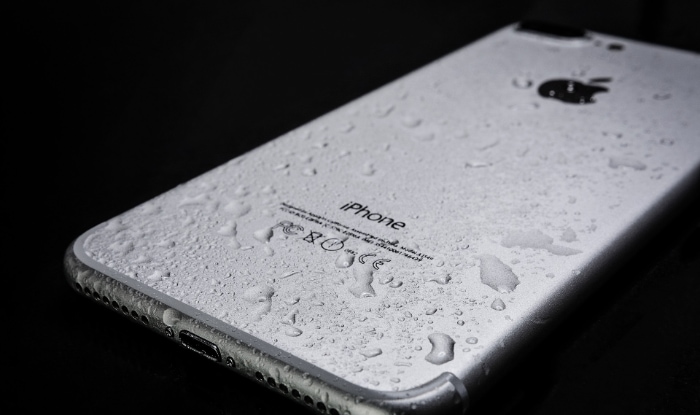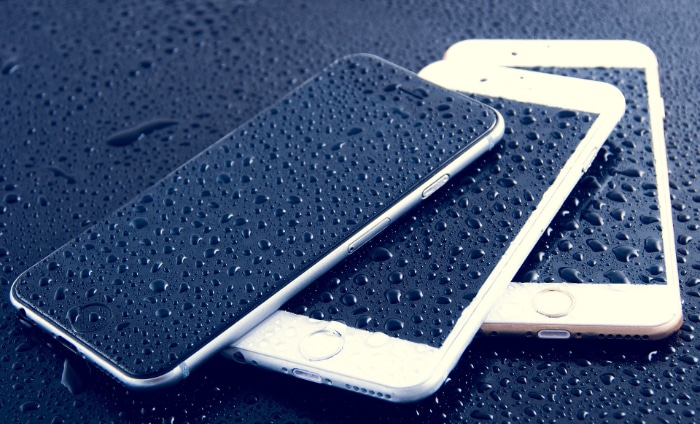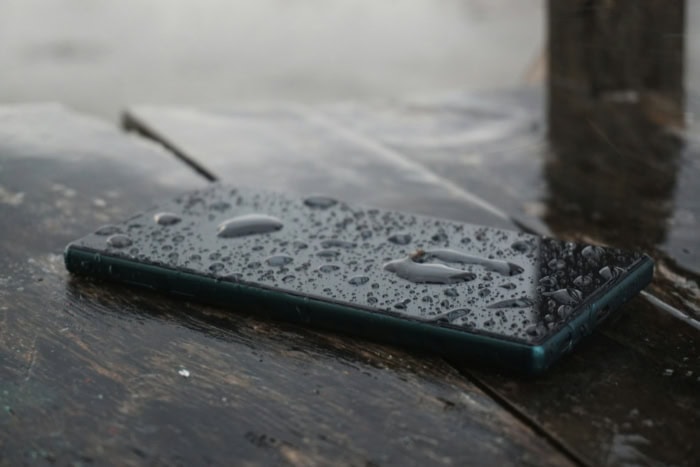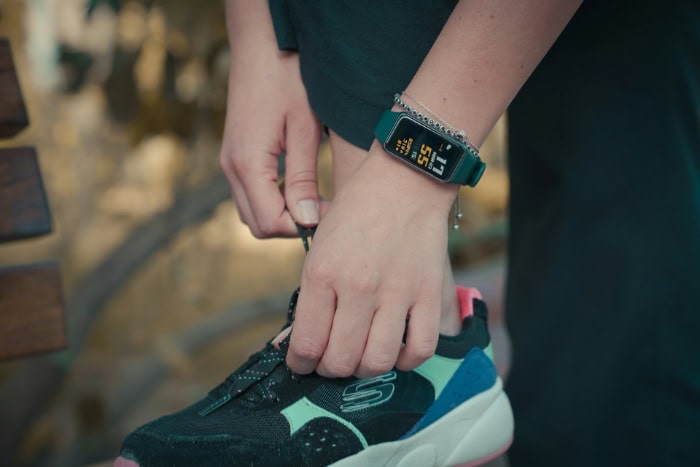IPX7 vs. IP67: Which One Is Better?

Durability and performance are essential factors when choosing electronics or industrial equipment. Whether you’re buying a smartphone, smartwatch, or rugged outdoor gear, understanding how well a device can resist water and dust is critical to making an informed decision.
This is where IP ratings, such as IPX7 and IP67, come into play. These ratings provide valuable insights into a product’s ability to withstand environmental factors, but what sets IPX7 and IP67 apart? Why does one offer better protection in certain situations?
Core Differences
IPX7 and IP67 are both widely recognized ratings that indicate a device’s ability to withstand water exposure, but they differ significantly when it comes to protection against dust and solid particles. Understanding these differences helps identify the environments where each rating is most suitable.
While both ratings share the same level of waterproofing, only IP67 guarantees complete protection against dust ingress. Let’s take a closer look at what each rating means and how they compare.
IPX7 Definition
A device with an IPX7 rating offers reliable protection against water ingress, specifically submersion in up to one meter of water for up to 30 minutes. This makes it ideal for short-term exposure to water, such as accidental drops into a pool or use during heavy rainfall.
However, the “X” in the rating signifies that the device has not been evaluated for protection against solid particles like dust, dirt, or sand.
It’s important to note that the absence of a dust protection rating does not necessarily mean the device lacks any dust resistance, it simply means that this aspect has not been tested or certified. As a result, an IPX7-rated device may be vulnerable in dusty environments, potentially impacting its functionality over time.
IP67 Definition
An IP67 rating signifies a high level of durability, offering both complete dust protection and the same level of water resistance as IPX7. The “6” in the rating indicates that the device is dust-tight, meaning it is completely sealed to prevent any ingress of solid particles, regardless of their size.
This is particularly important in environments with fine, abrasive dust, such as construction sites or deserts.
In terms of water resistance, IP67 devices can also withstand submersion in up to one meter of water for up to 30 minutes, matching the waterproofing capabilities of IPX7. This combination of dust-tightness and water resistance makes IP67-rated devices versatile, as they can handle both dusty and wet conditions without compromising performance.
Head-to-Head Comparison Table
The following table highlights the distinctions between IPX7 and IP67:
| Feature | IPX7 | IP67 |
| Dust Resistance | Not evaluated (indicated by “X”) | Fully dust-tight, no particle ingress |
| Waterproofing | Submersion in up to 1m of water for 30min | Submersion in up to 1m of water for 30min |
| Use-Case Limitations | Unsuitable for dusty environments | Suitable for dusty and wet environments |
| Certification Scope | Liquid ingress testing only | Both dust and liquid ingress testing |
This comparison illustrates that while both ratings provide identical water resistance, IP67 offers the added assurance of complete dust protection. This makes IP67-rated devices more versatile, especially for outdoor or industrial applications where both dust and water exposure are common.
Practical Applications and Use Cases

IPX7 and IP67 devices are engineered to handle water exposure, but the additional dust protection offered by IP67 expands its usability across a wider range of environments. Matching a device’s IP rating to its intended use can significantly enhance its performance and durability.
While IPX7 is well-suited for specific scenarios involving water exposure in relatively clean settings, IP67 offers a more robust solution for challenging outdoor and industrial conditions.
IPX7 Ideal Scenarios
Devices with an IPX7 rating excel in situations where water exposure is a primary concern, but protection against dust has a lower priority. This makes them perfect for casual or indoor uses in controlled environments.
For example, poolside speakers or waterproof headphones often carry an IPX7 rating because they are designed to handle accidental splashes or brief submersion without being affected.
Another common application for IPX7-rated devices is in rain-prone settings, such as smartwatches or fitness trackers used during outdoor exercise. These devices don’t need to contend with heavy dust, meaning they can focus on ensuring water resistance during activities like running in the rain or swimming.
IPX7 is also an excellent choice for products used primarily indoors, where dust exposure is minimal. Items like bathroom scales or kitchen appliances can benefit from water resistance to withstand spills or accidental splashes, making IPX7 a practical and sufficient rating for such purposes.
IP67 Ideal Scenarios
An IP67 rating is the go-to standard for devices that need to survive harsher conditions, as it combines complete dust protection with reliable water resistance. Outdoor activities often involve exposure to both dust and water, making IP67-rated devices an ideal solution.
For example, rugged smartphones, action cameras, and wearable devices designed for extreme sports are frequently built to this specification, as they may encounter dusty trails, sandy beaches, or unexpected rain.
In industrial environments, IP67 is particularly valuable for equipment like sensors, machinery, or communication devices used on construction sites or in factories. These settings often involve fine dust and debris, which can easily infiltrate and damage electronics without sufficient protection.
IP67-rated devices can operate reliably in such demanding conditions, ensuring long-term durability even in abrasive, dust-filled environments.
For anyone who needs dual protection against solids and liquids, IP67 truly stands out. Its ability to prevent dust ingress while maintaining waterproofing ensures a level of versatility that supports a broad range of use cases, from desert expeditions to underwater photography.
Testing Standards and Certification

Devices with IP ratings go through rigorous testing procedures to ensure their resilience against water and dust. These tests, standardized internationally, provide manufacturers and consumers with reliable benchmarks to assess device durability.
Both IPX7 and IP67 undergo specific testing to verify their waterproofing capabilities, but only IP67 includes additional testing for dust protection.
IPX7 Testing
IPX7 testing is specifically designed to evaluate a device’s ability to resist water ingress under controlled submersion conditions. During this process, the device is submerged in water to a depth of one meter for a duration of 30 minutes.
The goal is to ensure that water cannot penetrate the internal components, maintaining the device’s functionality even after exposure.
The test is conducted under strictly regulated conditions, such as maintaining the water temperature within a specified range and ensuring there is no significant water movement during submersion. If a product passes the test, it is awarded an IPX7 rating, confirming that it can handle short-term immersion without sustaining damage.
However, IPX7 testing does not include any evaluation for dust resistance. The “X” in the rating indicates that the device has not been tested against solid particles, meaning its ability to block dust remains unknown.
Devices with this rating might still possess some level of dust protection, but it is not guaranteed or standardized.
IP67 Testing
Devices rated IP67 undergo a more comprehensive certification process, as they are tested for both dust and water resistance. Dust protection is evaluated using a specialized dust chamber, where the device is exposed to fine particles under vacuum conditions. This test ensures that no particles, regardless of size, can penetrate the device’s enclosure.
The result is complete dust-tightness, making the device suitable for rugged and dusty environments.
For the water resistance portion, IP67 devices are subjected to the same submersion test as IPX7. They are immersed in water up to one meter deep for 30 minutes to confirm their ability to resist water ingress.
Only devices that pass both the dust and water tests qualify for the IP67 rating, ensuring their reliability across a broad range of challenging environments.
Certification Bodies
The IP testing framework is governed by international standards, primarily established under IEC 60529, which is maintained by the International Electrotechnical Commission (IEC). This standard outlines the specific testing conditions and requirements for each IP rating level.
Manufacturers seeking to certify their devices often work with independent testing labs or certification bodies that adhere to these standards. These organizations conduct the required tests using precise equipment and protocols, ensuring that the results are consistent and trustworthy.
Once a device successfully meets the criteria, it is granted the corresponding IP rating, allowing manufacturers to communicate its level of protection confidently to consumers.
This standardized process ensures that IP ratings remain a reliable metric for assessing the durability of electronic devices across different industries.
Cost, Durability, and Value Trade-offs

When deciding between IPX7 and IP67-rated devices, cost, durability, and overall value play important roles. While both ratings ensure a level of water protection, the additional dust resistance of IP67 often incurs higher costs but provides significant benefits in certain scenarios.
Cost Differences
IP67-rated devices tend to be more expensive compared to those with an IPX7 rating, and this difference is largely due to the additional testing and engineering required to achieve full dust protection. Creating a completely dust-tight enclosure often involves higher manufacturing complexity, specialized seals, and rigorous testing protocols in dust chambers.
These factors contribute to the increased production costs that are passed on to consumers.
In contrast, IPX7 devices are typically designed for simpler environments focused only on waterproofing. The absence of dust testing and protection results in lower manufacturing and certification costs, making IPX7 devices a more budget-friendly option for users who primarily need water resistance without worrying about exposure to dust or abrasive materials.
Durability Expectations
Durability varies significantly between IPX7 and IP67 devices, especially in challenging environments. IPX7-rated devices perform well in wet conditions but can struggle in abrasive or dusty environments.
For example, in areas with fine particles such as sand or dust, the lack of dust protection in IPX7-rated devices can lead to internal damage over time. Dust can infiltrate components, impairing functionality or causing irreversible wear.
On the other hand, IP67-rated devices are built for long-term resilience in mixed conditions. They are designed to withstand exposure to both water and dust, making them more reliable in outdoor or industrial settings.
The complete dust-tightness of IP67-rated devices ensures that even the finest particles cannot penetrate their enclosures, preserving internal components from harm. This level of durability is especially important for products like rugged smartphones, industrial tools, and outdoor gear that are subject to more extreme use.
Value Assessment
Choosing between IPX7 and IP67 ultimately depends on how and where the device will be used. For users who require protection primarily against water, such as swimmers or those using devices in rain-prone environments, IPX7 may offer sufficient protection without the added cost of IP67.
Products like waterproof earphones, fitness bands, or kitchen appliances often meet consumer needs with an IPX7 rating, as dust resistance is not a critical requirement.
However, for environments that combine water and dust exposure, investing in an IP67-rated device provides better value over time. The dual protection ensures reliable performance and extended longevity, especially for outdoor adventurers, industrial workers, or anyone frequently encountering harsh conditions.
While the upfront cost of IP67 devices may be higher, their durability and ability to handle diverse environments can minimize the need for repairs or replacements, making them a cost-effective choice in the long run.
Conclusion
IPX7 and IP67 ratings each offer unique advantages, catering to different needs and environments. While IPX7 is well-suited for water-focused scenarios like swimming, rainy conditions, or indoor use, IP67 provides enhanced durability through its dual protection against both water and dust.
The added cost of IP67 devices reflects their ability to perform reliably in harsher settings, from dusty construction sites to outdoor adventures.
By examining the design, testing standards, and practical applications of these ratings, it becomes clear that the choice between them lies in balancing specific requirements with budget considerations. For casual water exposure, IPX7 may suffice, but for those expecting more rugged use, IP67 remains the more versatile and dependable option.
Recognizing what each rating brings to the table ensures that devices align with their intended purpose, delivering the protection needed to keep them functioning in their respective environments.


